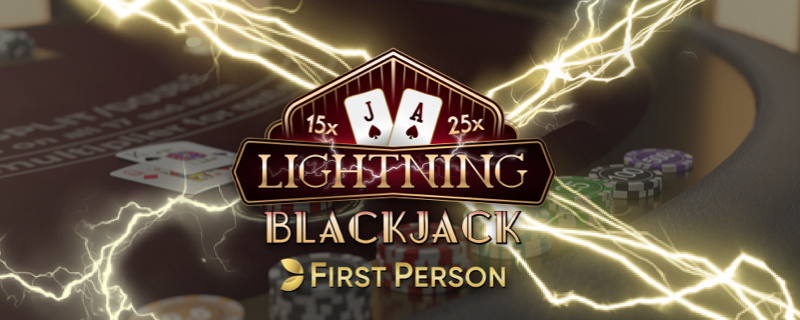LIFTING THE LID: The Battle of Bramall Lane between Sheffield United and West Brom went down as one of the most famous games in English football. We caught up with Blades striker Paul Peschisolido to relive that famous day.
Sheffield United 0-3 West Brom, 16 March 2002.
On the face of it, it was just another normal Saturday afternoon in English football’s second tier, with one team going home with all three points.
Yet there was nothing normal about this First Division clash between Sheffield United and West Brom.
Some 19 years later and it’s gone down in folklore as ‘The Battle of Bramall Lane’ and remains the only professional game in English football to this day to have been abandoned due to one team not having enough players on the pitch to continue.
“It was a horrible game, a horrible day,” former Sheffield United striker Paul Peschisolido tells BETDAQ. “I’ve tried to blank it out of my mind because it wasn’t a very god afternoon for us, it was a complete and utter disaster from start to finish.”
Indeed, just nine minutes in and United were already down to 10 men as goalkeeper Simon Tracey was sent off for handling the ball outside of the penalty area. West Brom soon capitalised on their one-man advantage with Scott Dobie opening the scoring for the visitors nine minutes later.
By the 62nd minute, the Baggies had netted a second through Derek McInnes, and the match looked to be all over, with nobody inside Brammall Lane being able to foresee the events that were about to unfold.
“It felt like it was just a bad day at the office at 2-0 down,” Peschisolido says. “We were down to 10 men, we were 2-0 down, so it was just a case of let’s get this game over and done with and worry about the next one. There was no inclination that a battle would erupt…”
But erupt it did. Three minutes after West Brom had doubled their lead, the clash turned ugly.
Georges Santos, who had just been brought on by United boss Neil Warnock as a substitute a few seconds earlier, was shown a red card following what can be described at best as a high and very badly timed two-footed lunge on Andy Johnson.
While playing for Nottingham Forest the previous season, Johnson had fractured Santos’ cheekbone with a swinging elbow – leading to suspicions that Santos was out for revenge.
“It was a 50/50, maybe even a 70/30, and you could see that Georges had seen the red mist and had lunged like a long jumper over the top of the ball,” Peschisolido says. “It really was a horrendous challenge, he caught Andy Johnson on the shin, and Johnson went 360 degrees in the air and landed on the ground.
“I’ve heard some of the other lads say it was a half-decent challenge, but it was a long jump, he was in the air for about four seconds. It was a nasty ‘I’m going to get you back’ challenge. We were 2-0 down and when he came on he saw the opportunity to get revenge.
“It’s a shame because Georges is such a lovely bloke, he’s not that type of man. But that fractured cheekbone did do a lot of damage to him and he felt as though it was on purpose, so there must have been a bit of revenge in the back of his mind when that ball dropped.”
By now, all hell had broken loose.
Santos’ dismissal was followed by a mass scuffle on the pitch, with Patrick Suffo getting sent off for head-butting McInnes right in front of the referee, leaving him needing stitches and reducing the Blades to eight men. Like Santos, Suffo too had just been brought on as a substitute by United a few seconds earlier.
“Patrick Suffo, in front of the referee, decides to head McInnes in the face, lifting his eye open, claret everywhere, and then he gets sent off. And that was it,” Peschisolido says. “We were now down to three sending offs and down to seven outfield players and a goalkeeper. It was damage limitation after that as it wasn’t going to go the right way. What pursued after that was carnage, the game was carnage…”
Despite the three red cards, tackles continued to fly in from the hosts, with United captain Keith Curle just one of the Blades players fortunate to avoid a further sending-off after appearing to throw a punch at McInnes.
“Keith Curle was tackling everything that moved,” Peschisolido says. “Some of those challenges probably warranted another red card but we could see that the referee was not likely to give another red card because he was worried that the game could be called off.
“Michael Brown had gone into two or three challenges which, again, he could have gone to prison for let alone get a red card. We could see that the referee just wasn’t going to send people off, so it was carnage for the remainder of the game, there was kicking and jumping with tackles flying everywhere.”
In the 77th minute, West Brom added a third goal with Dobie tapping in from close-range. A few minutes later, Brown limped off for United, with Robert Ullathorne also going off injured in the 82nd minute, reducing the Blades to just six men and without any more substitutes, leading referee Eddie Wolstenholme to abandon the game with the rules stating that a match should not continue if there are fewer than seven players in either team.
“The referee didn’t know what to do, nor did we,” Peschisolido says. “We were looking around pleased that the game was called off because we were getting the run around. I don’t think anyone even thought of replays, we just wanted the game to be over. They were 3-0 up at the time and we were chasing shadows. It was literally just standing on your own 18-yard box trying not to concede, so when he called it off it was more relief than anything.”
Yet the controversy did not stop there.
United were accused by some of deliberately trying to get the game abandoned by feigning injury, with West Brom manager Gary Megson stating after the match: “I’ve been in professional football since 16 and I’m 42 now. I’ve never ever witnessed anything as disgraceful as that.”
Peschisolido, however, is insistent that United had not been thinking about trying to end the game early.
“These accusations started coming in about feigning injuries and Neil Warnock trying to get the game called off, and it just wasn’t the case. I wasn’t even aware of that rule,” Peschisolido says.
“It wasn’t until afterwards when we’d got to the changing room that we realised the impact of the game, being the first one ever to be called off. I think Gary Megson was saying that we were trying to get it replayed, which wasn’t the case. It was just one of those days that everything that could have gone wrong, went wrong.”
West Brom were eventually awarded a 3–0 win and the three points by the Football League. As for United, they were fined £10,000, with Suffo hit with a £3,000 fine plus a six-match ban, Curle £500 and a two-match ban, Santos a six-match ban and Warnock £300 for improper conduct towards the fourth official. Santos and Suffo, meanwhile, never played for the club again.
“As players we were gutted because we wanted to go up that season and of course we wanted to win the game,” Peschisolido says. “We were left embarrassed by the whole event and just wanted it swept under the carpet to move on to the next one.”
Summing up the afternoon, Peschisolido adds: “It was just weird, really strange. I guess that’s why we’re still talking about it today because there were so many bizarre moments in the game, all at once. It’s one that we all try and forget but it’s played quite an importance and it was a unique game, so we’re still talking about it 20 years on despite the fact we want to forget about it!”









